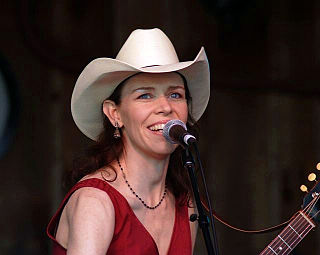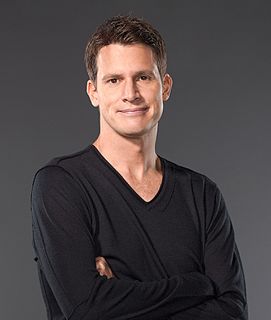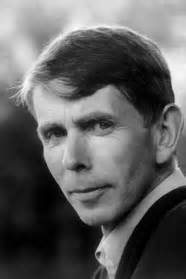A Quote by Sloane Crosley
I think the goal with any writing, but especially narrative nonfiction, is to put the blockade of putting your thoughts in this unnatural medium of print and then trying to reach through that and actually convey what's going on, what you think, and make people laugh and recognize themselves while doing it. Definitely the laughing thing.
Related Quotes
I'm going to enjoy every second, and I'm going to know I'm enjoying it while I'm enjoying it. Most people don't live; they just race. They are trying to reach some goal far away on the horizon, and in the heat of the going they get so breathless and panting that they lose sight of the beautiful, tranquil country they are passing through; and then the first thing they know, they are old and worn out, and it doesn't make any difference whether they've reached the goal or not.
It's a really nice way to cut your teeth, doing live shows. It's like going to the gym because you do have to think fast. You are constantly under the threat of people not laughing. Instead of getting hit, people could just not laugh, so you really are trying to mine quickly for the funniest thing you could say in that moment.
When you're researching things that have happened, the clear narrative arc is not there already. This is the problem of writing nonfiction for me - writing nonfiction which is about serious subjects and has serious political and social points to make, yet which is meant to be popular to a degree - what happens when the facts don't fit a convenient narrative arc? I guess that for a lot of nonfiction writers that is a central challenge.
When people come to you with problems or challenges, don't automatically solve them. As a mama bear, you want to take care of your cubs, so you tend to be protective and insulate them against all those things. But if you keep solving problems for your people, they don't learn how to actually solve problems for themselves, and it doesn't scale. Make sure that when people come in with challenges and problems, the first thing you're doing is actually putting it back to them and saying: "What do you think we should do about it? How do you think we should approach this?".
It might be one thing to think about putting on a dress, but when you're actually putting on a dress, it's a weird thing, because you're going, "Huh. I'm putting on a dress. Do I leave my underwear on? Do I get some other underwear? Is there something special I should wear?" All that dumb stuff. I'd never had any interest in putting on my mom's clothes, except to think, "Well, they are nice clothes..."
Whatever it is probably won't go away, so we might as well live and laugh through it. When we double over laughing, we're bending so we won't break. If you think your particular troubles are too heavy and too traumatic to laugh about, remember that laughing is like changing a baby's diaper. It doesn't solve any problems permanently, but it makes things more acceptable for awhile.
David Foster Wallace is a big idol of mine. His writing is so clear that for years I'd read him and think, My God, he is actually writing the way I think. He's describing the thoughts in my head. And then I realized, No, wait. He's just such a good writer, so transparent and articulate, that when he describes his thoughts, I think they're my own.






































